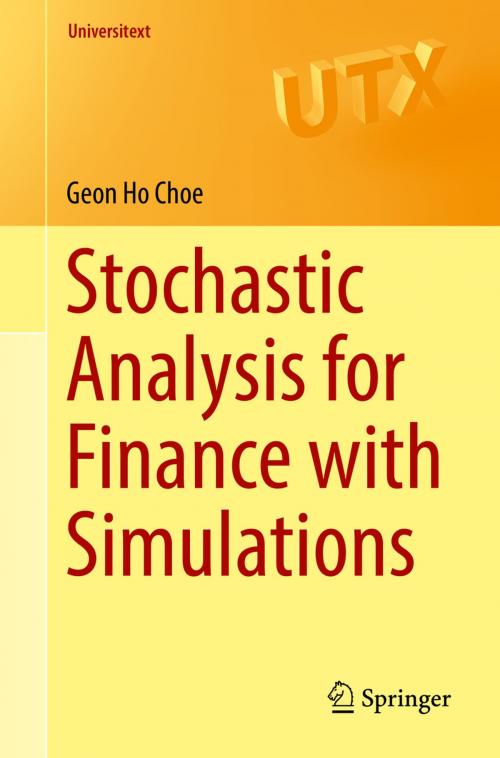Stochastic Analysis for Finance with Simulations
Nonfiction, Science & Nature, Mathematics, Applied, Business & Finance| Author: | Geon Ho Choe | ISBN: | 9783319255897 |
| Publisher: | Springer International Publishing | Publication: | July 14, 2016 |
| Imprint: | Springer | Language: | English |
| Author: | Geon Ho Choe |
| ISBN: | 9783319255897 |
| Publisher: | Springer International Publishing |
| Publication: | July 14, 2016 |
| Imprint: | Springer |
| Language: | English |
This book is an introduction to stochastic analysis and quantitative finance; it includes both theoretical and computational methods. Topics covered are stochastic calculus, option pricing, optimal portfolio investment, and interest rate models. Also included are simulations of stochastic phenomena, numerical solutions of the Black–Scholes–Merton equation, Monte Carlo methods, and time series. Basic measure theory is used as a tool to describe probabilistic phenomena.
The level of familiarity with computer programming is kept to a minimum. To make the book accessible to a wider audience, some background mathematical facts are included in the first part of the book and also in the appendices. This work attempts to bridge the gap between mathematics and finance by using diagrams, graphs and simulations in addition to rigorous theoretical exposition. Simulations are not only used as the computational method in quantitative finance, but they can also facilitate an intuitive and deeper understanding of theoretical concepts.
Stochastic Analysis for Finance with Simulations is designed for readers who want to have a deeper understanding of the delicate theory of quantitative finance by doing computer simulations in addition to theoretical study. It will particularly appeal to advanced undergraduate and graduate students in mathematics and business, but not excluding practitioners in finance industry.
This book is an introduction to stochastic analysis and quantitative finance; it includes both theoretical and computational methods. Topics covered are stochastic calculus, option pricing, optimal portfolio investment, and interest rate models. Also included are simulations of stochastic phenomena, numerical solutions of the Black–Scholes–Merton equation, Monte Carlo methods, and time series. Basic measure theory is used as a tool to describe probabilistic phenomena.
The level of familiarity with computer programming is kept to a minimum. To make the book accessible to a wider audience, some background mathematical facts are included in the first part of the book and also in the appendices. This work attempts to bridge the gap between mathematics and finance by using diagrams, graphs and simulations in addition to rigorous theoretical exposition. Simulations are not only used as the computational method in quantitative finance, but they can also facilitate an intuitive and deeper understanding of theoretical concepts.
Stochastic Analysis for Finance with Simulations is designed for readers who want to have a deeper understanding of the delicate theory of quantitative finance by doing computer simulations in addition to theoretical study. It will particularly appeal to advanced undergraduate and graduate students in mathematics and business, but not excluding practitioners in finance industry.















